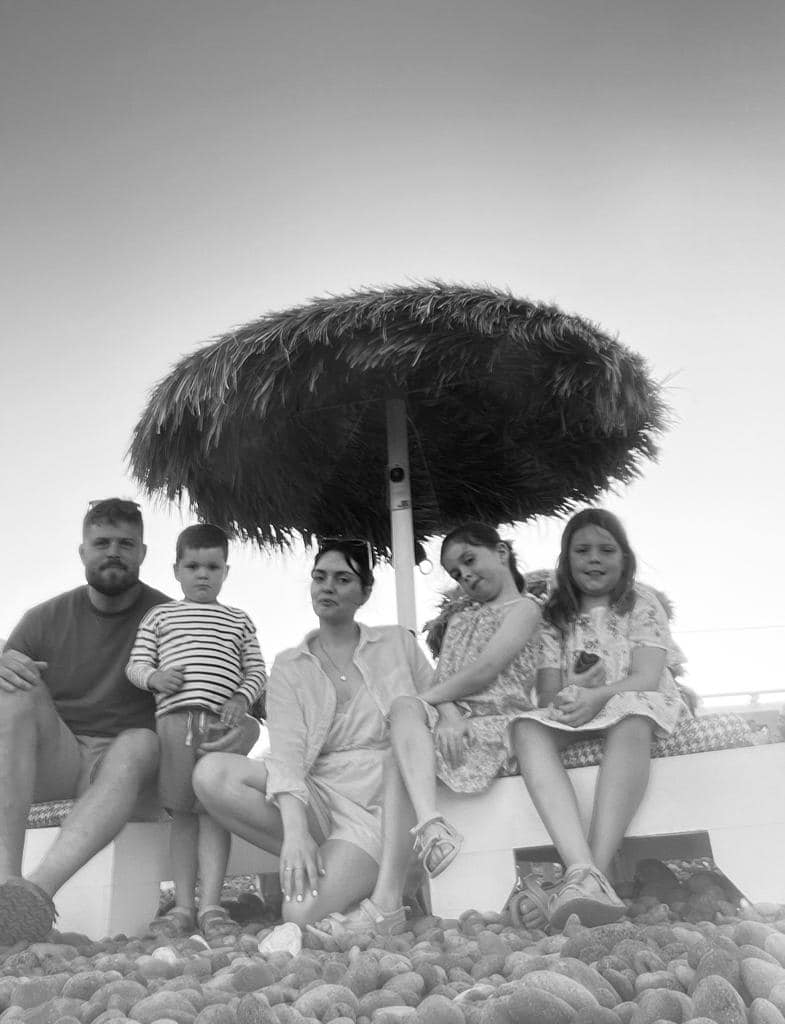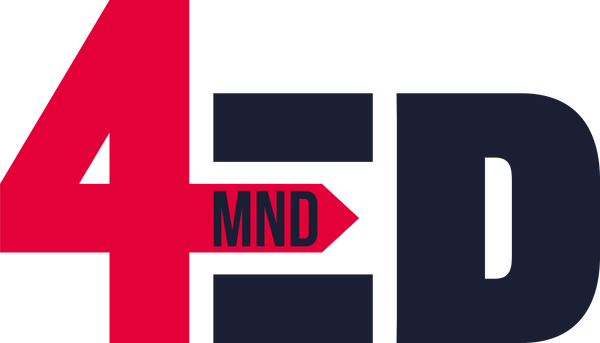
Diagnosis: MND
Ed SlaterShare
I was diagnosed with MND in July 2022, but only after a torturous 10 months of feeling my symptoms worsen, leading to what felt like an inevitable outcome. I remember noticing my first symptoms in September 2021. I woke up one morning with muscle twitching in my left bicep and shoulder. I had experienced twitching before; for example, after excessive weight sessions in the gym or when winding down in the evening, but it rarely happened. When it did, it was nothing more than a nuisance and would disappear as quickly as it came. So when I woke up with the twitching in my arm, I didn’t pay it much attention. I got up and went about my day, unaware that I was at the beginning of a horrific journey toward Motor Neurone Disease.
What made these muscle twitches different was that they didn’t disappear. I still have them now, except they occur all over my body. I don’t know if they’ve calmed down or if I’ve just gotten used to them, but they don’t bother me much anymore. At first, I thought they’d go away after a day, but each morning, they were still there. I let it go for a week, and the twitching continued. I started to feel nervous because I became hyperaware of them all day long. My only respite was being on the rugby pitch when I didn’t have time to focus on them. I confided in my wife, Jo, who had noticed the twitching too. She reassured me that they might disappear as quickly as they had come. I asked her to check if the twitching continued while I was asleep. It did.
By now, I began looking into possible explanations. Why was it just my left arm? Had I been sleeping awkwardly? Was my stiff neck causing it? Did I injure my shoulder while lifting weights? Was it an old injury resurfacing? I even thought about the two Covid jabs and the flu jab I had, all in that arm just before my symptoms began. The truth is, I had no way of knowing what had triggered it. But that’s what the brain does—it tries to find explanations, entering survival mode, fight or flight. I kept quiet about the twitching for a good three or four months, but you can imagine how I was feeling with the twitching seemingly here to stay. During this time, I googled my symptoms and found several suggestions: a trapped nerve, benign fasciculations, long Covid, and MND.
I recalled a conversation with someone I knew who had been diagnosed with MND a few years earlier. Jake van Poortvliet, who sadly passed away, was a family member of friends and former teammates Tom and Ben Youngs. Jake was a terrific guy—down to earth, tough, with a great sense of humour. I met him through Tom and Ben, shared a few beers on stag dos, and was devastated when I learned of his diagnosis. Jake had been very matter-of-fact about it. When asked how he first noticed something was wrong, he said, "To be honest, I just noticed a lot of twitching in my neck and traps, and it never went away." That sentence stuck with me, and the longer my twitching persisted, the more I feared something serious was happening.
My concerns deepened one December morning at the gym. I was lifting dumbbells and, while my right hand functioned normally, my left hand struggled to lift the weight. I shrugged the dumbbell onto my lap and continued with my session, but I had acknowledged the weakness. I was avoiding the symptoms and hadn’t spoken to anyone about it beyond Jo and my friend Fraser. After this, Jo persuaded me to speak to Gloucester's club doctor, which I did. I had a private chat with Karen, the brilliant doctor at Gloucester. I told her about the twitching but left out the weakness I’d noticed, as it wasn’t yet easy to detect. While Karen examined me, I studied her expression intently. I noticed a shift in her tone and a sense of urgency in her next steps, which involved referring me to a private neurologist. I must mention that the club and medical team were absolutely brilliant in helping me during this time. Rhys Hughes continues to provide me with physiotherapy and—terrible chat!
I went to see the neurologist for an assessment, some brain and neck scans, and an EMG, which measures muscle response to nerve stimulation. I explained my symptoms, again leaving out the weakness in my wrist. You might wonder why, and the answer is simple: I knew twitching and weakness were serious symptoms, but I wanted to wait for the results of the scan. I was also trying to avoid the bad news I felt was looming. As it turned out, the scans came back clear. Usually, this would be good news, but in my situation, it was just the opposite. If you have MND or have read others’ diagnosis stories, a common thread is the hope that scans or blood tests will provide answers. When everything comes back clear, it only brings you closer to the diagnosis you’re praying it isn’t. The EMG wasn’t conclusive either, and since I was still functionally strong and appeared fine beyond the twitching, I was discharged with suspected benign fasciculations, which are harmless, unexplained muscle twitches. I left, knowing I would be back, but for now, I could continue evading the truth.
Four months later, in May, I could no longer hide the growing weakness in my left arm. My strength scores in the gym were declining, and I was falling on my left side during rugby breakdowns because I couldn’t support my weight quickly enough. Even passing the ball with my left hand felt like I didn’t have full control.
I went back to Karen and had another appointment with the neurologist. This time, I knew it was all coming to a head. The impending doom of the last nine months had taken its toll. I was exhausted from hiding, keeping secrets, and battling fear and anxiety. I needed a conclusion for my own sanity, so I dropped the bravado and gave the neurologist the whole picture. I had another EMG, which showed denervation in the muscles—a sign of MND. I was referred to the John Radcliffe Hospital, a centre renowned for dealing with MND, and scheduled an appointment for mid-June. We had a family holiday planned, so knowing what lay ahead, I moved the appointment to July to enjoy one last holiday with my family before receiving the diagnosis.

9 comments
Having knowledge of MND and the diagnosis phase, you are so brave to talk about this so openly. I cannot imagine your anguish in likely knowing what lay ahead. Thank you for all your inspirational work. You are deeply admired by so many who you will never know.
Thank you Ed for sharing this. My Dad was diagnosed 10 years ago and given 6 months to live. He’s still with us amazingly. But I recall the difficulty in getting a diagnosis, he had nerve damage from rugby and a weak left arm which masked symptoms. But he reported muscle twitches and strength loss .keep fighting and thanks again for sharing. JT
Thank you for your frankness & honesty in sharing your journey towards diagnosis.
Not often I am lost for words ( as yiu know) but this really stopped me in my tracks.
I am sure there are a lot of people out there who have had similar experiences & will benefit from reading your blog!
Thank you, Ed. You’re a star 🌟 🤩
I look forward to the next instalment but no pressure obviously.
Jan M MNDA Glos 💙🧡
Ed, you are an inspiration. I have nothing but admiration for your courage and bravery in sharing this story. Thank you.